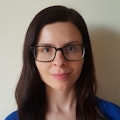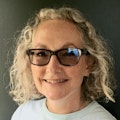
Kate Mee
Myfyriwr ymchwil, Yr Ysgol Seicoleg
- meek1@cardiff.ac.uk
- Canolfan Gwyddoniaeth Datblygiad Dynol (CUCHDS), 70 Plas y Parc, Caerdydd, CF10 3AT
Mae'r cynnwys hwn ar gael yn Saesneg yn unig.
Trosolwg
I am a PhD student based in CUCHDS, supervised by Dr Hana D’Souza and Professor Merideth Gattis. My interest is in the acquisition of sign-augmented language, such as Makaton, in young children with Down syndrome. My research uses head-mounted eye-tracking during parent-child interaction to examine the attentional and sensorimotor behavioural mechanisms underlying this learning.
Biography
- Undergraduate Education
2013 – 2017: BSc with year-long work placement, University of Bath
- Employment 2015 – 2016: Research intern – Families, Effective Learning & Literacy research group, University of Oxford
- Involvement with varied developmental and educational research, including organisation of the Network on Intrapersonal Research in Education international seminar series.
2017 – 2019: Research assistant – Developmental Dynamics Lab, University of East Anglia
- Research with Professor John Spencer, examining the neural mechanisms underlying the early development of visual working memory, in the UK and India
2020 – 2022: Research assistant – Cambridge Babylab, University of Cambridge
- Research with Dr Hana D’Souza examining attentional and motor skills in young children with Down syndrome and Williams syndrome, and their relationship with language development
Ymchil
Diddordebau ymchwil
Intellectual disability is often associated with language delay, which commonly emerges early in life but is responsive to early intervention. There is much evidence to suggest that augmenting communication with manual signs, such as Makaton, can facilitate expressive language development in young children with intellectual disability. However, despite the evidential benefits and popular usage of sign-augmented communication within this group, there is currently limited research on the specific learning processes involved in its development.
Research with typically developing children has used head-mounted eye-tracking during parent-child interaction to identify when and how attentional and motor patterns intersect to create ideal spoken-word learning moments, and this is currently being examined in children with neurodevelopmental disorders. However, the research has so far omitted sign-augmented language, despite its prevalent usage by children with intellectual disability.
My PhD project is therefore interested in the attentional and motor processes involved in the acquisition of sign-augmented language in young children with intellectual disability, using head-mounted eye-tracking during parent-child interaction. This research has a specific focus on children with Down syndrome, as the most common known genetic syndrome associated with intellectual disability. Through understanding more about how sign-augmented language develops moment-by moment, we hope to provide parents and practitioners with information on how to better support children’s language learning.
Traethawd ymchwil
Understanding sign-augmented language learning in parent-child dyads: what can we learn from the embodied experiences of young children with Down syndrome?
Ffynhonnell ariannu
ESRC Wales DTP general studentship
Goruchwyliaeth

